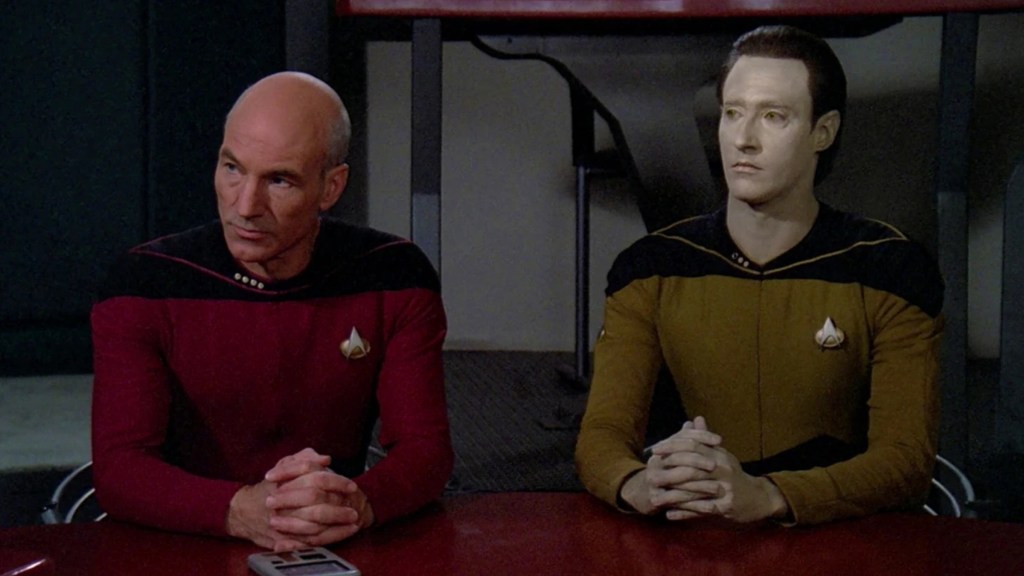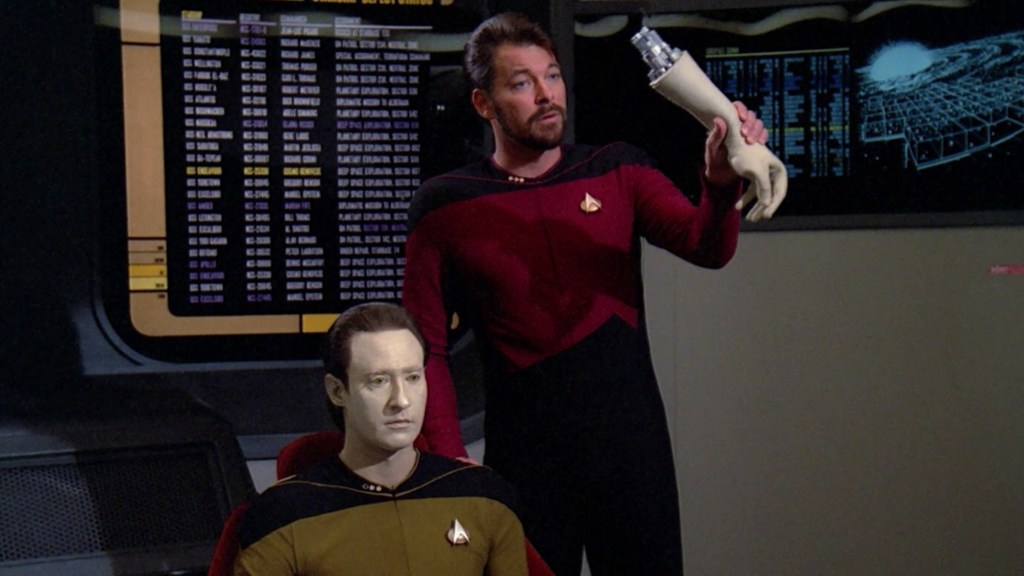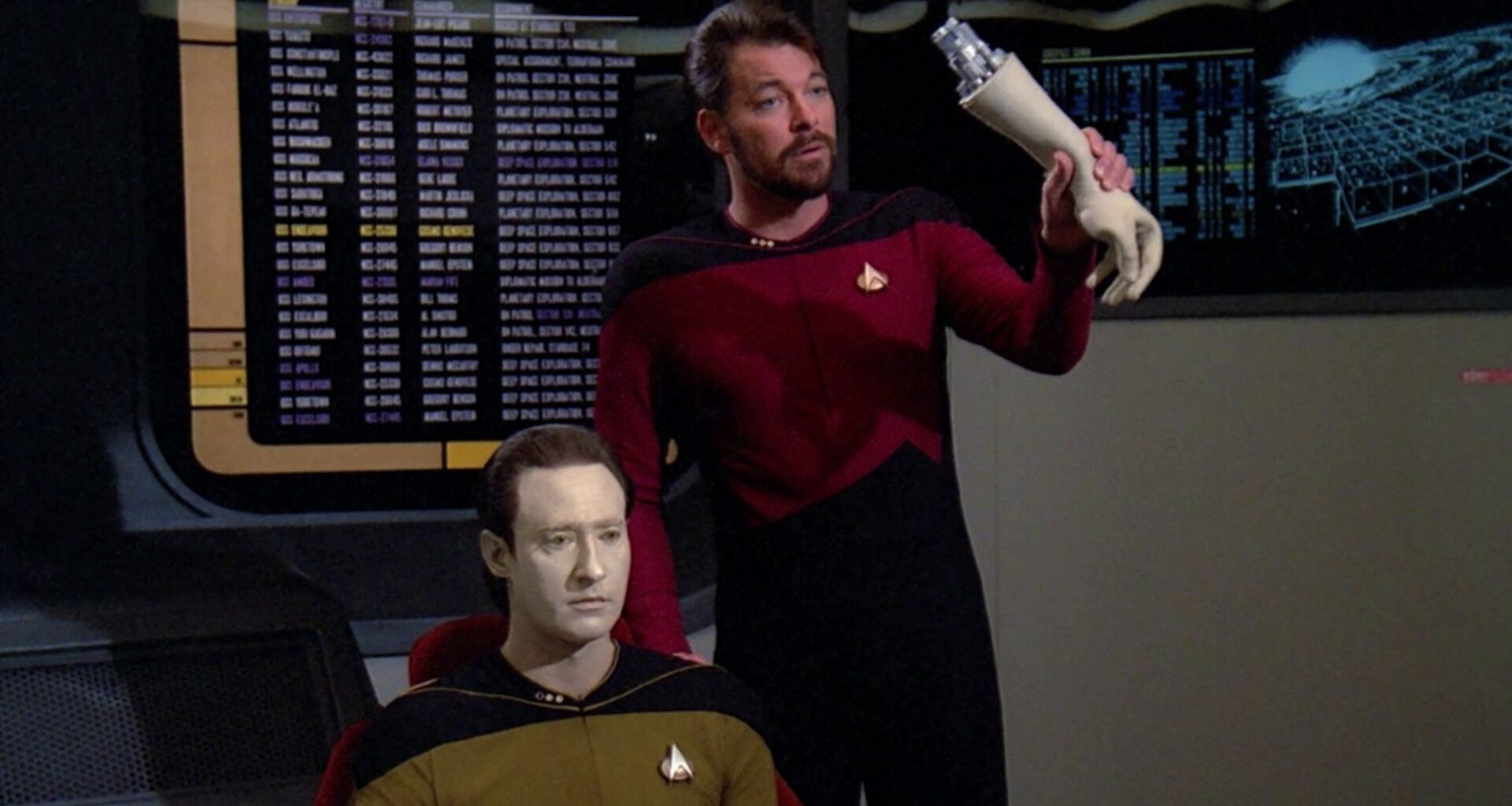When Star Trek: The Next Generation debuted in 1987, it had big shoes to fill. By then, The Original Series had become a sacred tome for Trekkies, and TNG’s job was to make sure it lined up with the universe Gene Roddenberry built, while carving out its own fandom. When “The Measure of a Man” aired in Season 2, it marked a turn toward greatness for the series, and it began to climb towards that high bar.
Yet for all its brilliance, some fans have pointed out how the episode’s logic doesn’t hold up under examination. “The Measure of a Man” is beloved for its courtroom drama appeal, but it’s also plagued with canon question marks. The episode asks whether Lt. Commander Data is a sentient being with rights, but by this point, Data has been a decorated Starfleet officer for over two decades. He’s the second officer on the flagship of the Federation. So, shouldn’t someone have decided this question a long time ago?
The Data Dilemma That The Next Generation Fans Are Still Debating
 paramount
paramount
The episode spirals out from a seemingly innocuous line. As he’s leaving the bridge, an admiral turns to Picard and says, “Commander Maddox will be working on your android, by the way. See to it.” The line reframes Commander Data as property, however this notion seems impossible given what TNG had already established up to that point. Data had graduated from Starfleet Academy, served for 25 years, and risen to command rank. That journey would have required numerous reviews, promotions, and psychological evaluations. Somewhere in all that, someone would have legally recognized his personhood, or at least noticed that Starfleet’s most famous android wasn’t standard issue equipment.
The episode compounds the problem with Maddox’s backstory. Data tells Picard that Maddox was on the panel that reviewed his Starfleet application and was the only one to vote “no” on the grounds that Data isn’t sentient. But this line admits that the rest of the board voted “yes,” acknowledging Data as a sentient being capable of entering Starfleet. In other words, Starfleet had actually already decided this decades ago, and yet the episode revolves aroun the Federation re-litigating.
The court treats Data’s rights like an open question, despite the fact that he’s a high-ranking officer entrusted with command decisions and the lives of hundreds. Viewers have also pointed out that no one in Starfleet seems to have heard of him, which makes little sense given that he’s the first and only android to ever wear the uniform. If this were real, Data would be a Federation celebrity. When Riker disables Data in court to prove he can be turned off, the gallery gasps, but this isn’t really a shocking revelation, is it? Any biological life form can be rendered unconscious or incapacitated.
Why the Inconsistencies in “The Measure of a Man” Don’t Really Matter
 paramount
paramount
When you begin to poke holes in this chapter, it’s difficult to stop. However, despite all this, “The Measure of a Man” still holds up as one of TNG’s best episodes. It’s maybe not sensibly placed in the franchise’s chronology, and probably should have happened to Data as a cadet rather than a seasoned commander, but if you can look past the unsuccessful retcon, the episode’s philosophical core works well. The situation is similar to TOS’ “The Galileo Seven,” where Spock acts as if he’s never commanded humans before. In both cases, the story may have worked better as an early-career parable, yet somehow still work.
Ultimately, the inconsistencies don’t diminish the power of “The Measure of a Man.” Defenders of the episode have pointed out that science-fiction courtroom episodes rarely hold up under strict legal scrutiny, and that Star Trek has never portrayed Federation bureaucracy as a monolith. Admirals act unilaterally all the time, and when fans rehash the episode’s logical flaws, they’re often re-arguing the very points Picard already made in-universe. Maddox was wrong. Picard won. Data remains free. The story accomplished what it set out to do: forcing those who didn’t understand Data to acknowledge his humanity.
It’s worth remembering this line from another TNG episode: “There can be no justice so long as laws are absolute.” “The Measure of a Man” isn’t perfect law, but it is great storytelling, and it was penned by someone who understood both. Melinda Snodgrass, the episode’s writer, was a lawyer before she joined Star Trek, and perhaps that’s another reason the story still rings true.
Which side are you on in this debate? Do the inconsistencies bother you? Leave a comment below and join the conversation now in the ComicBook Forum!

